
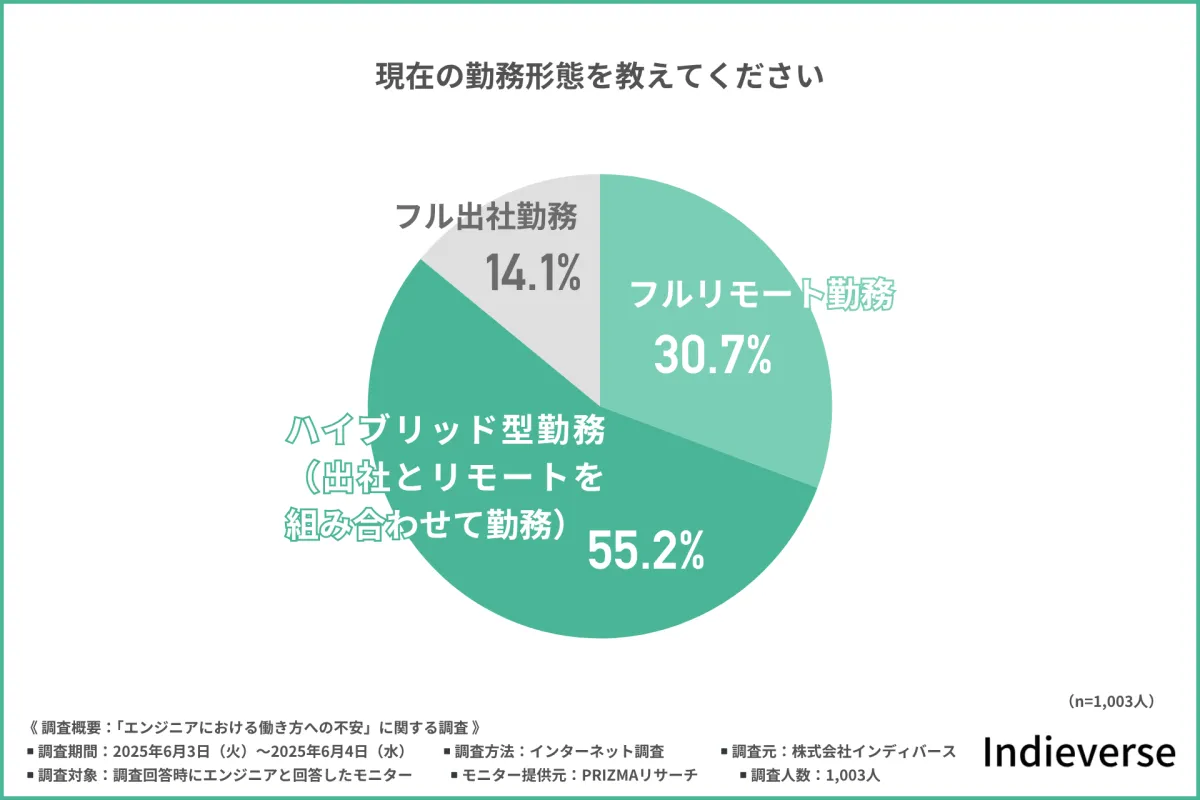
Unpacking Engineer Work Style Anxiety: Insights from Indieverse Survey
Examining Engineer Work Style Anxiety: Key Findings from Indieverse Survey
In recent years, the landscape of work for engineers has been undergoing a significant transformation, particularly catalyzed by the COVID-19 pandemic. A notable shift towards full remote work has allowed engineers to escape the geographical constraints of traditional office settings, fostering more flexible and liberated career paths. In this context, Indieverse Co., Ltd., based in Musashino, Tokyo, conducted a comprehensive survey targeting engineers to explore their concerns regarding work styles.
Effects of Recent Regulations on Work Styles
Starting in 2025, Japan is gradually implementing amendments to the Child Care and Family Care Leave Act. This includes provisions promoting teleworking to accommodate parenting and caregiving responsibilities. While this regulatory framework seems to enhance flexibility, there is a noticeable push from companies mandating in-office attendance or requiring employees to work several days in the office.
Thus, the balance between organizational needs and employees' desires for flexible working arrangements is increasingly under scrutiny. The survey conducted by Indieverse aims to provide insights into these tensions.
Survey Overview
- - Duration: June 3-4, 2025
- - Methodology: Conducted online via PRIZMA, with participation from 1,003 engineers.
- - Objective: To examine the anxiety surrounding work styles among engineers in Japan.
Key Findings from the Survey
Over 30% of employees engaged in full in-office work reported dissatisfaction with their current work styles. The predominant work arrangement among respondents was the hybrid model, combining both remote and in-office work (55.2%). Following that, 30.7% participated in full remote work, while only 14.1% were strictly in-office.
This shift illustrates that full in-office work is no longer the norm among engineers, with substantial dissatisfaction observed in this group. When queried about their levels of satisfaction with their current work styles, more than 90% of those working remotely expressed satisfaction, with over half categorizing their feelings as “very satisfied.” Conversely, only a little over 80% of hybrid workers reported satisfaction, and a striking 30% of those in full office settings were dissatisfied.
The Shift Back to In-Office Work
The survey also explored the trend of transitioning from remote work back to in-office requirements. Approximately 67% of respondents indicated they had experienced a mandatory return to the office. Among those, 42.7% reluctantly accepted this change, indicating that they felt it was unavoidable, suggesting a pragmatic acceptance from many engineers.
However, nearly 20% stated that they felt they could not continue their jobs under an in-office requirement, showing that changes in work arrangements could potentially lead to turnover or job changes. Among colleagues, commuting burdens (46.7%) and decreased productivity from a lack of remote work (45.0%) contributed to their resistance to returning to the office. Many see the flexibility of remote work as crucial to maintaining their productivity and work-life balance.
Conditions for Accepting Return to Work
When asked what conditions could encourage acceptance of in-office work, the ability to choose in-office days flexibly (49.3%) emerged as the most significant factor. Furthermore, expectations for temporary office requirements or flexible work hours ranked high as essential components for fostering acceptance among employees. These insights highlight the critical nature of workplace flexibility.
Employee Sentiments on Recent Trends
Delving deeper, around half of the respondents expressed dissatisfaction with the recent trend toward enforced in-office work, with comments reflecting sentiments of “outdated practices” and “lack of flexibility.” Many engineers are realizing that the efficiency they experienced with remote work cannot be replicated under strict office attendance policies.
The Need for Flexibility in Employment Practices
The survey results unequivocally indicate that flexibility in work arrangements is pivotal for employee satisfaction and retention among engineers. Engineers prioritize flexible work configurations, as evidenced by their responses about future work preferences. Should full in-office work become normalized, many engineers indicated they would consider alternate career paths, such as becoming freelancers, shifting to remote-first companies, or even changing industries. This trend underscores the urgent need for companies to reevaluate their employment strategies to attract and retain talent in this changing landscape.
Conclusion
The findings from Indieverse's survey reveal a critical perspective on how work styles impact engineer satisfaction. The data suggests a clear indication that flexibility in work arrangements directly correlates with employee retention and satisfaction. Currently, hybrid working is the prevailing model, and there's a significant inclination towards remote work among engineers. To mitigate turnover, organizations must explore flexible work arrangements that align with the needs of today’s workforce.
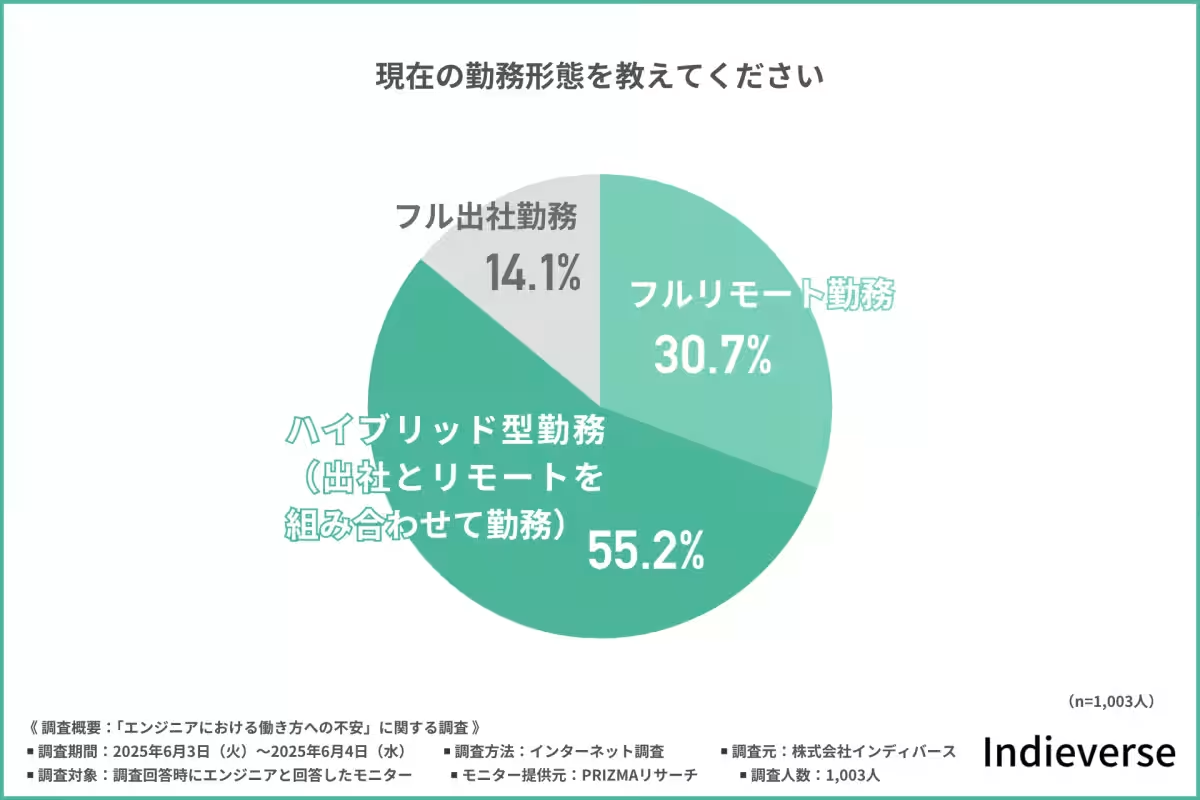
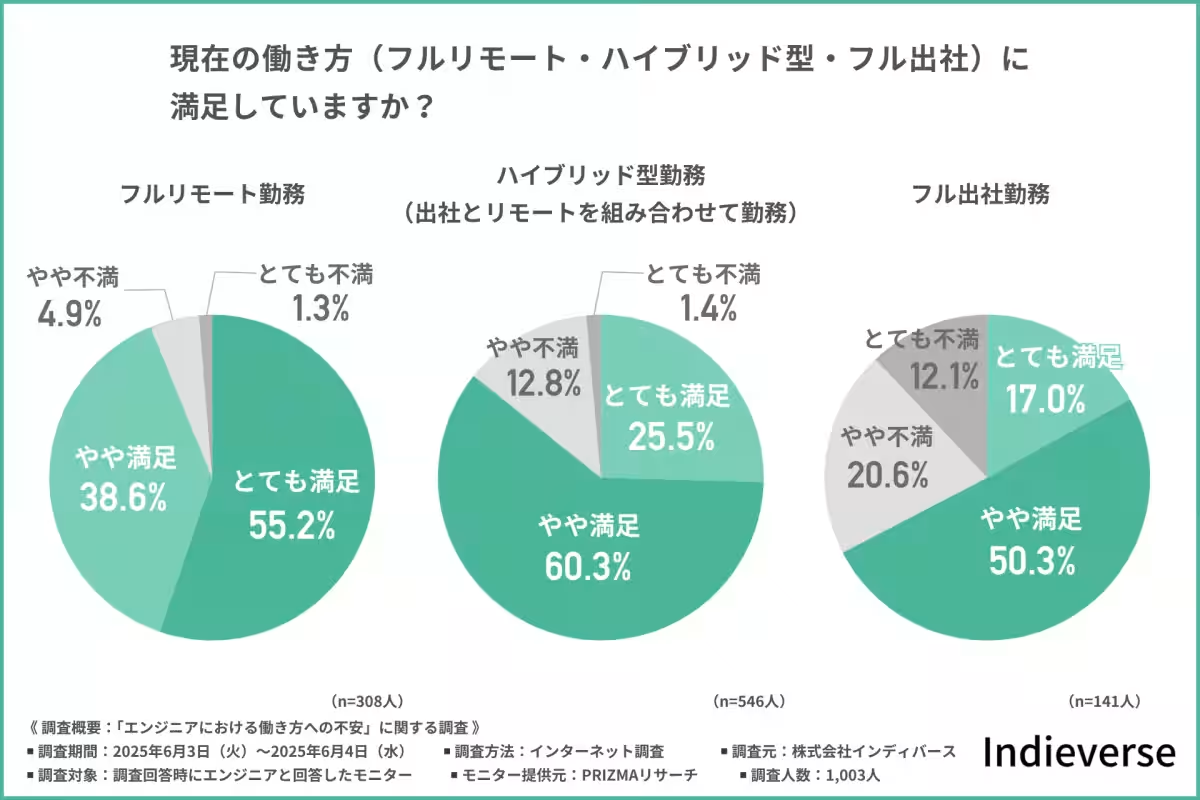
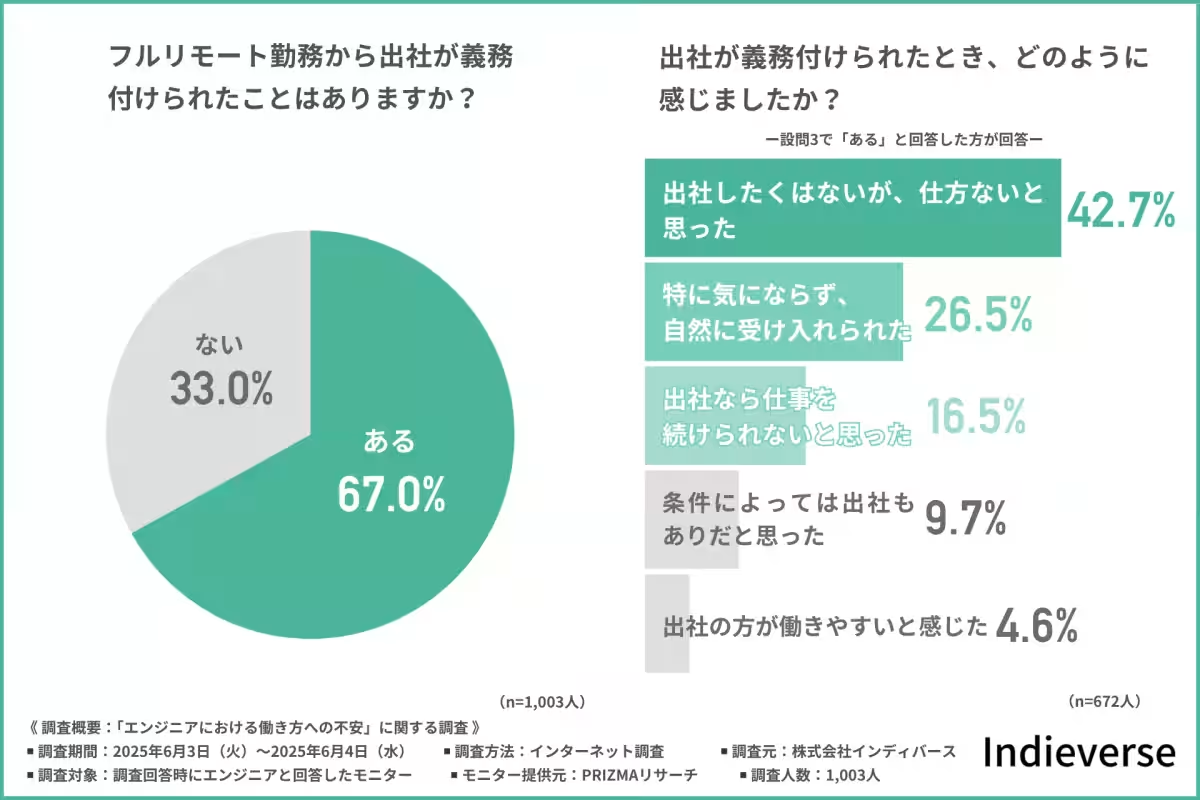
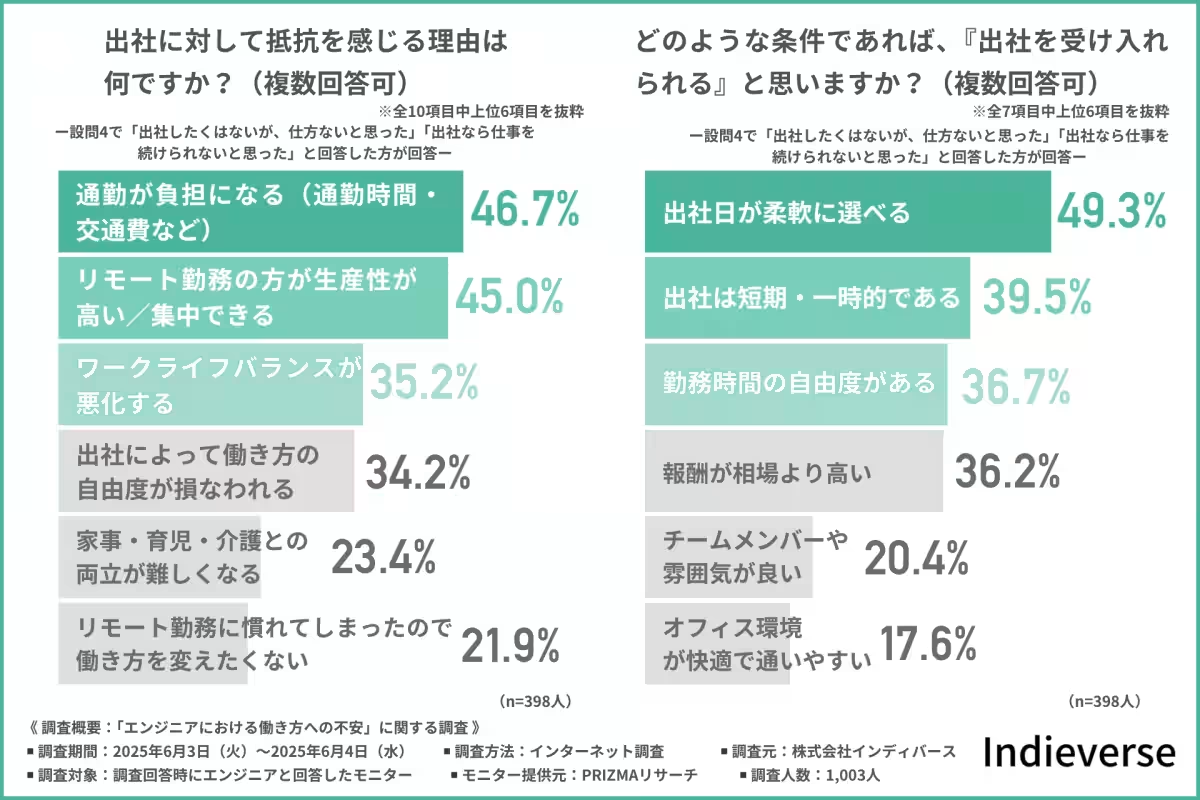
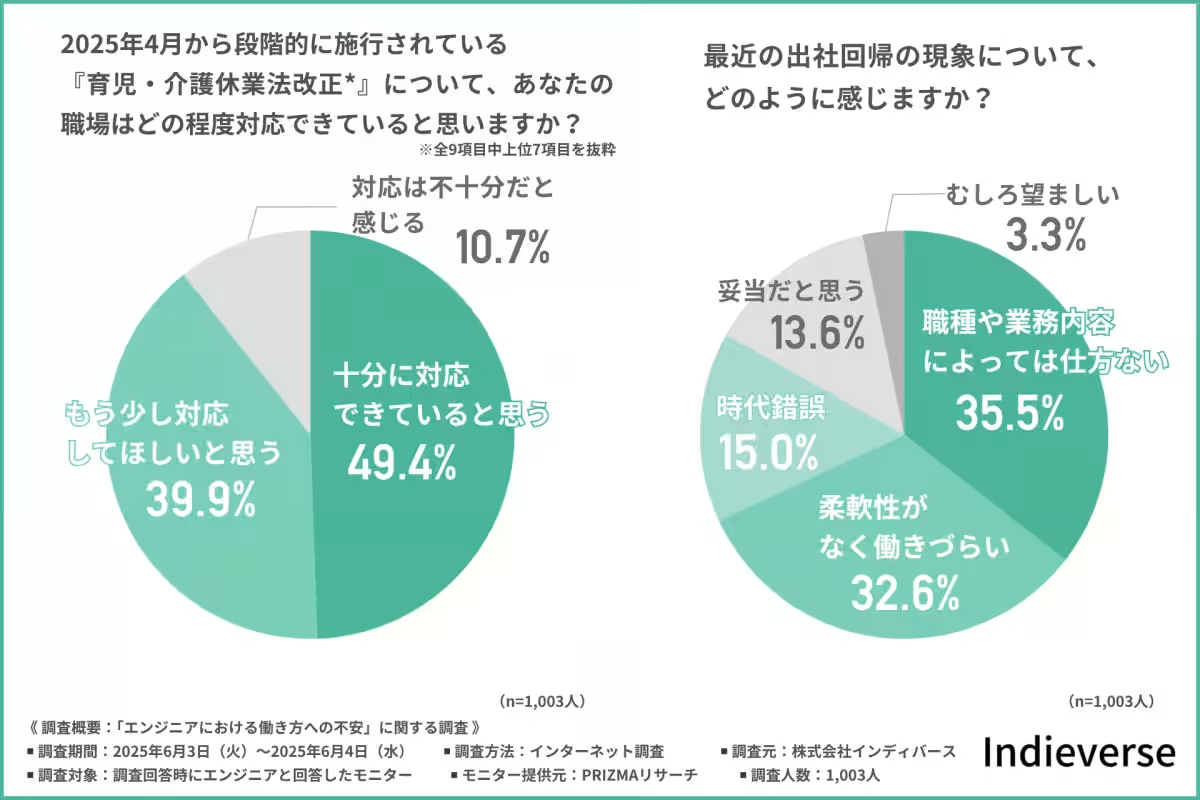
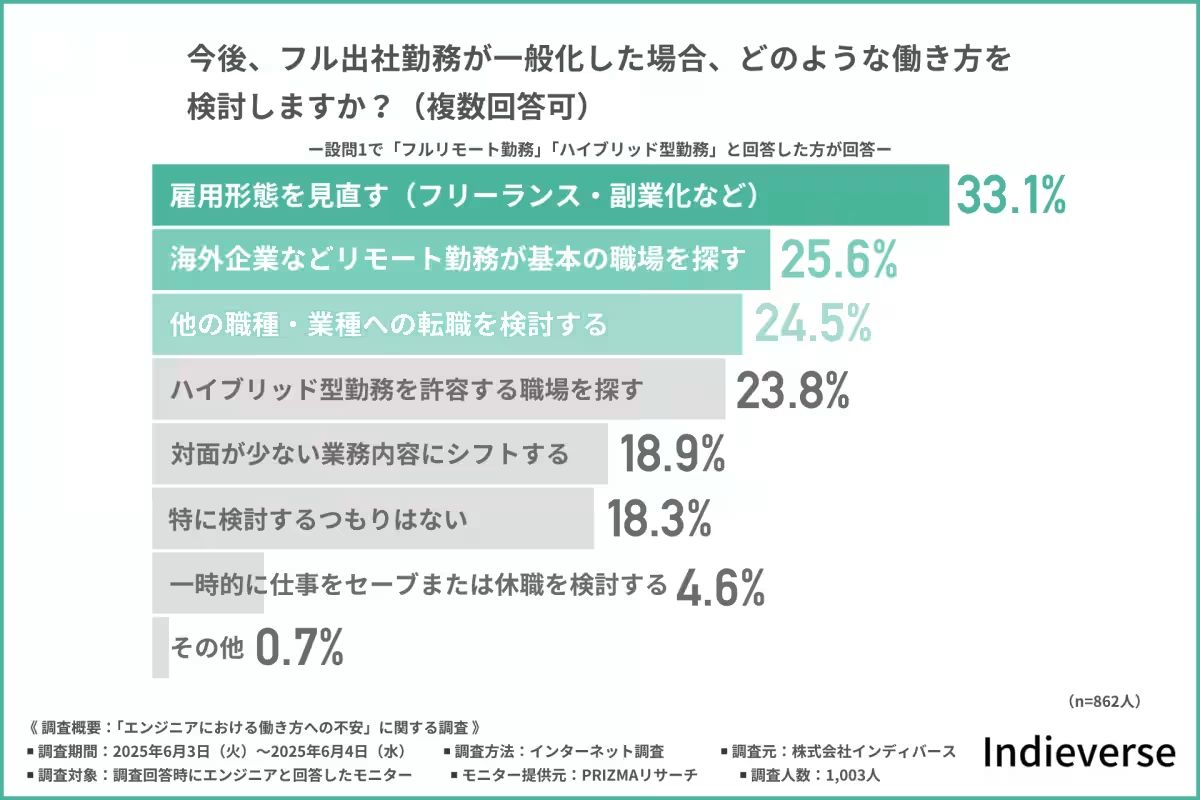

Topics People & Culture)










【About Using Articles】
You can freely use the title and article content by linking to the page where the article is posted.
※ Images cannot be used.
【About Links】
Links are free to use.